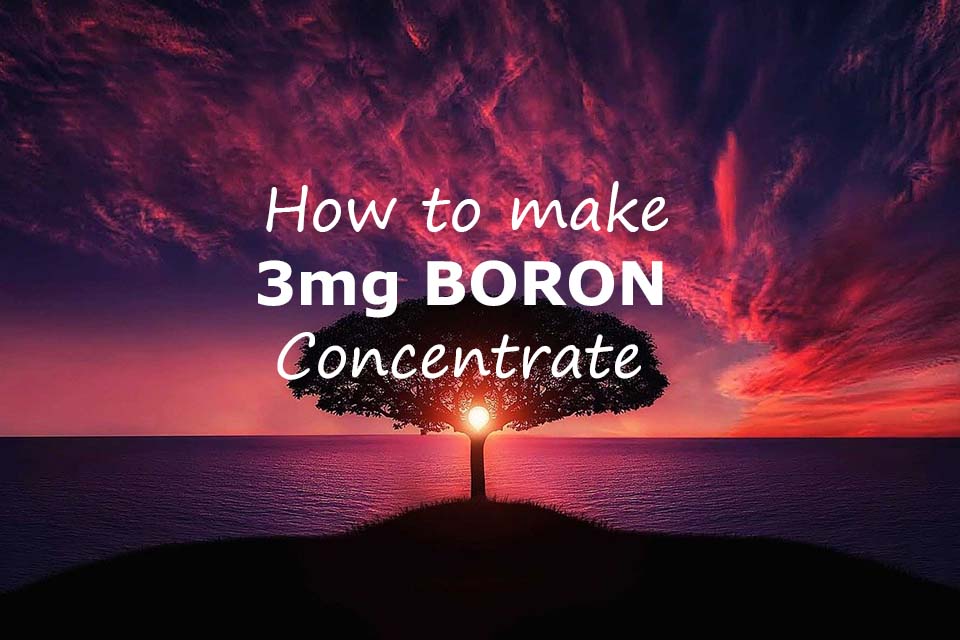Boron is a mineral that is found in food and the environment. Boron affects the way the body handles minerals such as magnesium, calcium, and phosphorus.
Boron is distributed throughout the human body with the highest concentration in the parathyroid glands, bones, and dental enamel.
Boron deficiency may cause overactive parathyroid, which raises the blood level of calcium by releasing calcium from bones and teeth. This may lead to osteoarthritis, tooth decay, calcification of soft tissues (stiff muscles), calcification of ovaries and pineal gland, kidney stones, calcification of kidneys leading to kidney failure, and many other issues.

How to Make 3mg Boron Concentrate
Dissolve 1 teaspoon of Borax (Sodium Tetraborate) in 1 liter of water. This is a concentrated boron solution.
1 teaspoon (5 ml) of concentrate solution is equal to 3 mg of Boron. Mix it with food or drink.
What is Borax?
Borax (Sodium Tetraborate) is a naturally occurring compound that is considered a salt. it’s made up of Sodium, Oxygen, and Boron.
You can read more about borax history here.
Boron Benefits
Boron may help with
- Menstrual cramps (10 mg of boron a daily by mouth)
- Athletic performance (increases muscle mass, etc.)
- May improve learning, memory, fine motor skills in older people
- Osteoarthritis – may decrease arthritis pain
- May improve low sex hormone production
- Other conditions
Boron Dosages
There is no Recommended Daily Allowance (RDA) for boron.
Maximum dosage of Boron (per WebMD):
- Over 19 y.o – 20 mg a day
- 14 to 18 y.o. – 17 mg a day
- 9 to 13 y.o. – 11 mg a day
- 4 to 8 y.o. – 6 mg a day
- 1 to 3 y.o. – 3 mg per day
Disclaimer: This is not medical advice. Please, do your own research before using it.